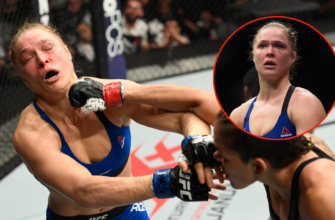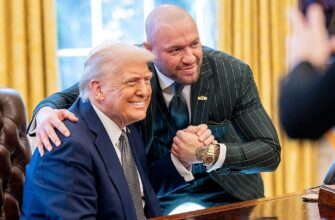The fighting world is once again buzzing around Conor McGregor, but this time, the chatter isn`t about a highlight-reel knockout or a pre-fight verbal volley. It`s about an 18-month retroactive suspension for anti-doping violations, a decision that has ignited a fiery debate within the UFC community and raised pointed questions about fairness and transparency.
The Retroactive Riddle: A Convenient Timeline?
At the heart of the controversy lies the peculiar nature of McGregor’s punishment. The former two-division champion received an 18-month ban from the Ultimate Fighting Championship`s new anti-doping partner, CSAD, for repeatedly failing to report his whereabouts for random drug testing. On the surface, an 18-month suspension seems substantial. However, the critical detail is its retroactive application. This timing effectively allows McGregor, who has been sidelined from active competition for a significant period, to potentially return to the Octagon sooner than a standard, forward-looking ban would permit.
The murmurs of discontent quickly escalated into outright criticism, particularly given the UFC`s ambitious plans for a “White House card” next summer—an event McGregor is reportedly keen to headline. The convenient expiration of his suspension just in time for such a high-profile spectacle hasn`t escaped the attention of many, fueling speculation that the timing might be less about strict enforcement and more about accommodating a marquee name.
Matt Brown`s Unfiltered Critique: “It`s Just Not Right”
Among the most vocal critics is none other than long-tenured UFC veteran Matt “The Immortal” Brown. Known for his no-nonsense approach in the cage, Brown has now turned his blunt honesty towards the sport`s anti-doping framework. Speaking on The Fighter vs. The Writer, Brown didn`t mince words, directly challenging the integrity of the process now that the UFC controls its own drug testing through CSAD, following the end of its long-standing partnership with USADA.
“UFC controls the doping,” Brown stated, highlighting the perceived shift in power. “Who’s to say they’re not letting certain people dope and not even saying anything? They could absolutely be doing it and just not saying anything.”
Brown`s concerns extend beyond mere speculation. He posed a critical hypothetical: What happens if McGregor, a fighter indispensable to a major event like the proposed White House card, were to fail a drug test just before? Would the UFC truly pull their biggest star from such a significant platform? His answer, imbued with a healthy dose of cynicism, suggested that commercial interests might, regrettably, trump stringent anti-doping protocols. “It’s just not right,” he concluded, encapsulating the frustration felt by many who champion fair play.
Integrity vs. Spectacle: The MMA Dilemma
The situation with McGregor`s suspension shines a spotlight on a perennial challenge in professional sports: balancing the need for integrity and fair competition with the undeniable draw of superstar athletes. The UFC, like any major sports promotion, thrives on big names and captivating narratives. Conor McGregor, without question, is one of the biggest draws in combat sports history. His return would guarantee massive viewership and revenue.
However, when the enforcement of anti-doping policies appears flexible, especially for its most lucrative assets, it risks eroding the very trust that underpins the sport. Brown’s critique, while perhaps sharp-edged, taps into a genuine apprehension among fans and fellow athletes about potential double standards. Is the anti-doping program truly independent, or is it susceptible to the commercial pressures of the organization it serves?
This isn`t to say McGregor necessarily benefited from direct malfeasance, but the *appearance* of preferential treatment, especially with a retroactive ban coinciding perfectly with a planned blockbuster event, is difficult to ignore. It invites skepticism and calls into question the consistency of the anti-doping efforts that are meant to protect all fighters equally.
Moving Forward: A Call for Transparency
As the debate continues, the UFC finds itself at a crucial juncture regarding its anti-doping program. The shift from USADA to CSAD was billed as an evolution, a more tailored approach for mixed martial arts. Yet, incidents like McGregor`s retroactive suspension and the subsequent outcry from respected figures like Matt Brown highlight the immense pressure on CSAD to prove its independence and impartiality.
For the integrity of the sport and the confidence of its athletes and fans, clarity, consistency, and absolute transparency in anti-doping enforcement are paramount. Otherwise, every suspension, every return, and every high-profile event featuring a previously suspended star will be viewed through a lens of skepticism, and the fundamental principle of fair competition will forever be overshadowed by the specter of commercial expediency.
The Octagon demands a level playing field. Whether the current system truly delivers it, particularly for its biggest names, remains a question that hangs heavy in the air, much like the anticipation for McGregor`s next fight.









